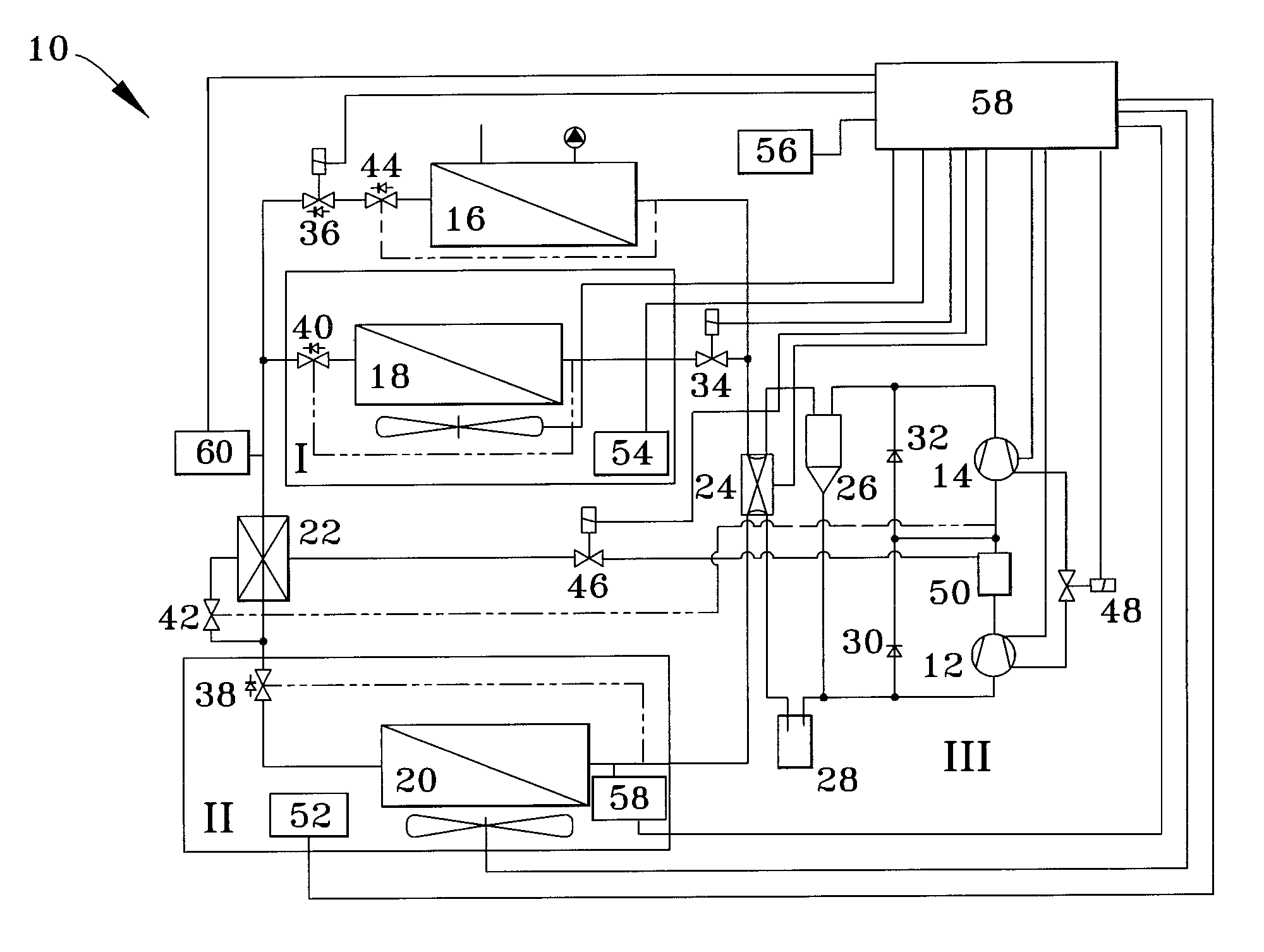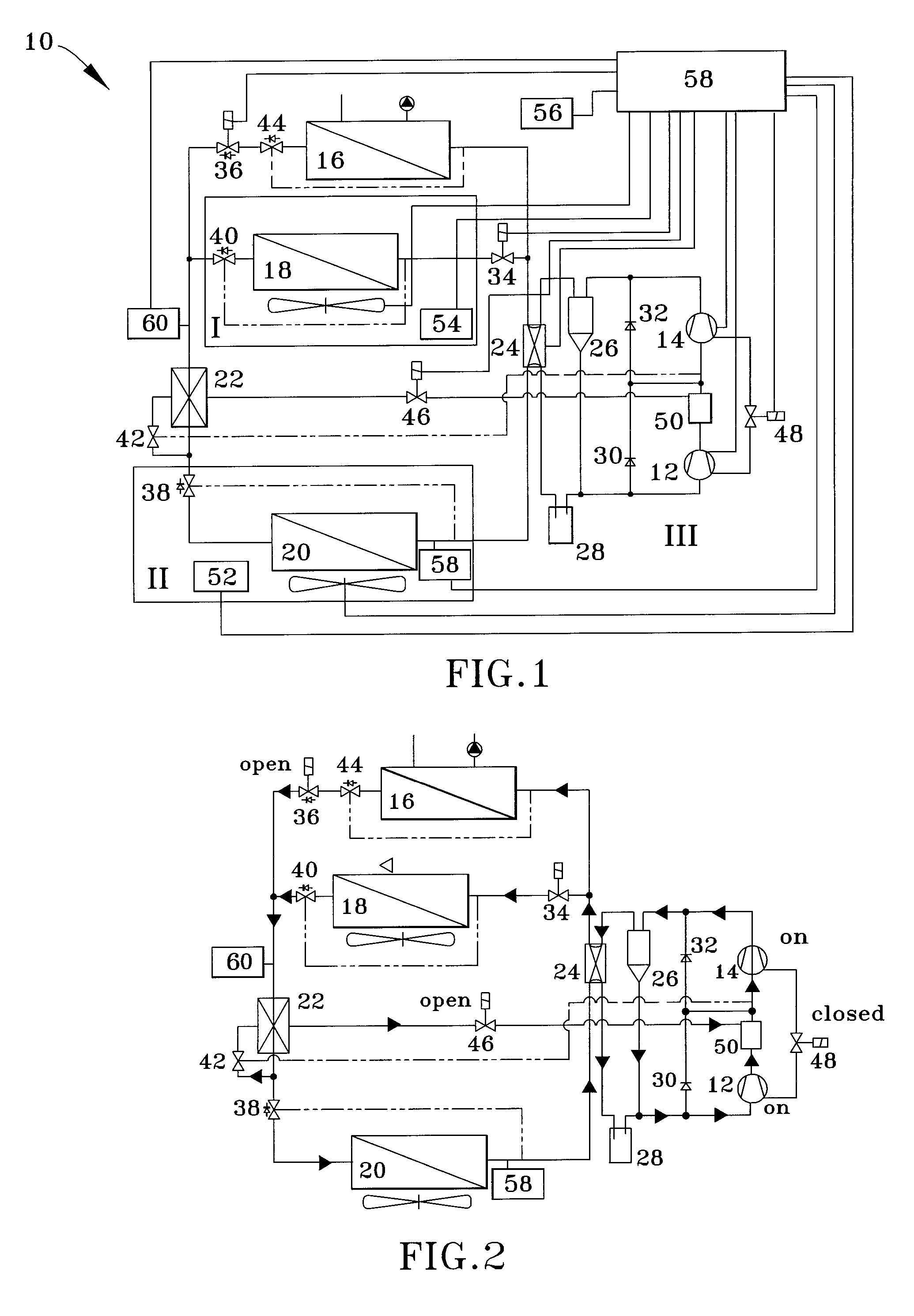Heat pump system with multi-stage compression
- Summary
- Abstract
- Description
- Claims
- Application Information
AI Technical Summary
Benefits of technology
Problems solved by technology
Method used
Image
Examples
Embodiment Construction
[0023] A heat pump system 10 in accordance with a preferred embodiment of the present invention is schematically represented in FIG. 1. The heat pump system 10 will be described with particular reference to residential house applications in nordic climates, it will be understood that the system 10 of this invention can find use in other applications and operating environments.
[0024] As shown in FIG. 1, the heat pump system 10 includes a low-stage compressor 12, a high stage compressor 14, an indoor refrigerant-water heat exchanger 16, an indoor refrigerant-air heat exchanger 18 for delivering heating and cooling air to the interior of the house (not shown), an outdoor refrigerant-air heat exchanger 20, a closed economizer 22, a four-way reversing valve 24, a lubricant separator 26, a suction gas accumulator 28, check valves 30 and 32 in fluidic parallel with the compressors 12 and 14, respectively, a control valve 34 for adjusting the refrigerant flow rate through the heat exchange...
PUM
 Login to View More
Login to View More Abstract
Description
Claims
Application Information
 Login to View More
Login to View More - R&D
- Intellectual Property
- Life Sciences
- Materials
- Tech Scout
- Unparalleled Data Quality
- Higher Quality Content
- 60% Fewer Hallucinations
Browse by: Latest US Patents, China's latest patents, Technical Efficacy Thesaurus, Application Domain, Technology Topic, Popular Technical Reports.
© 2025 PatSnap. All rights reserved.Legal|Privacy policy|Modern Slavery Act Transparency Statement|Sitemap|About US| Contact US: help@patsnap.com



